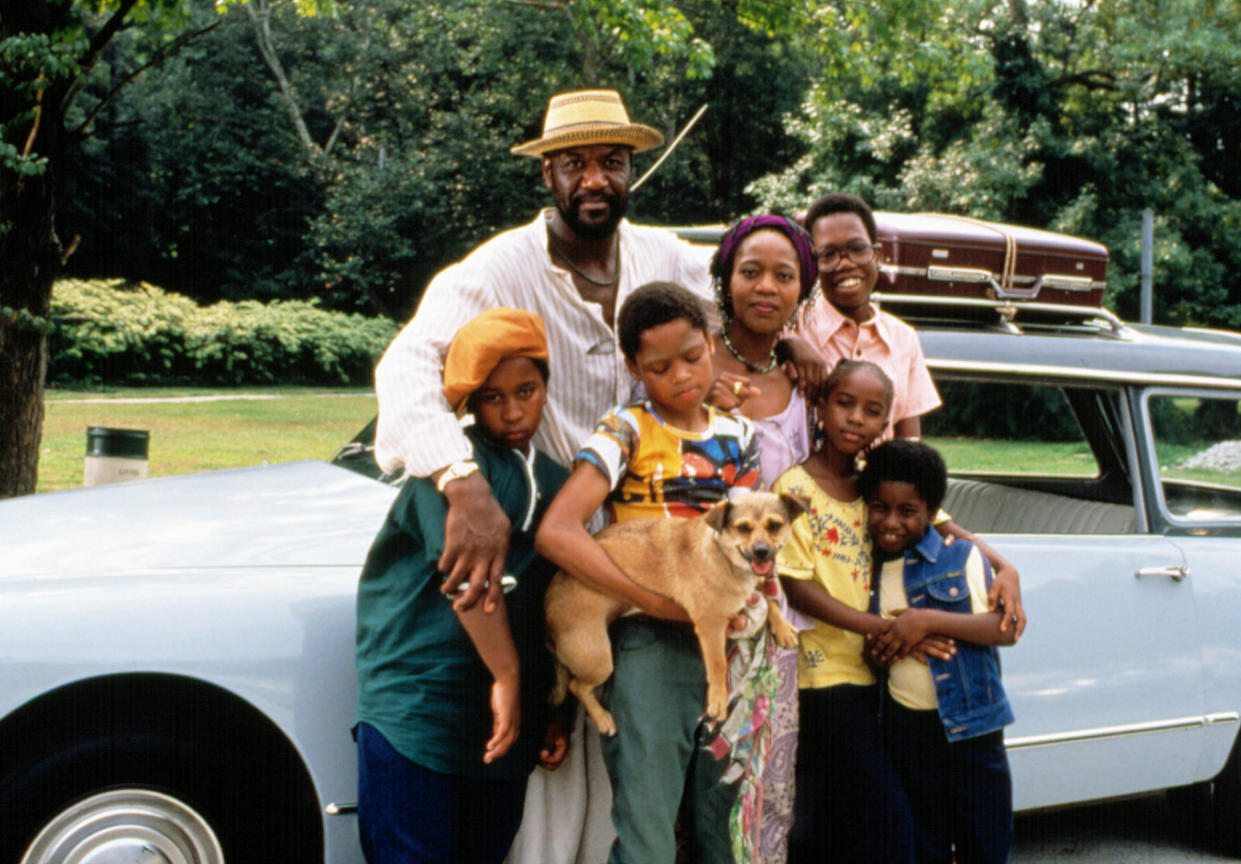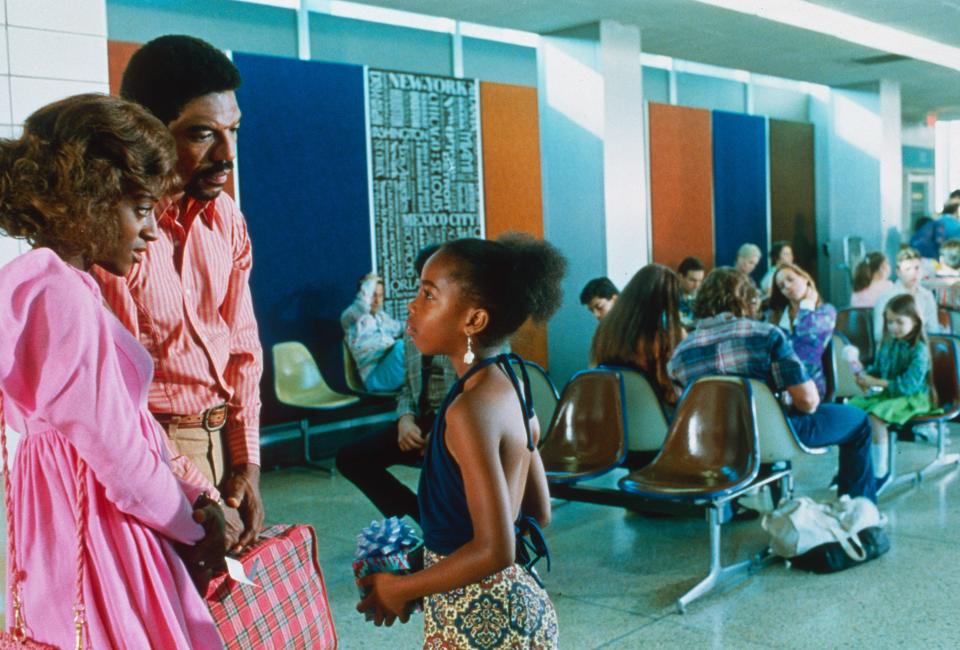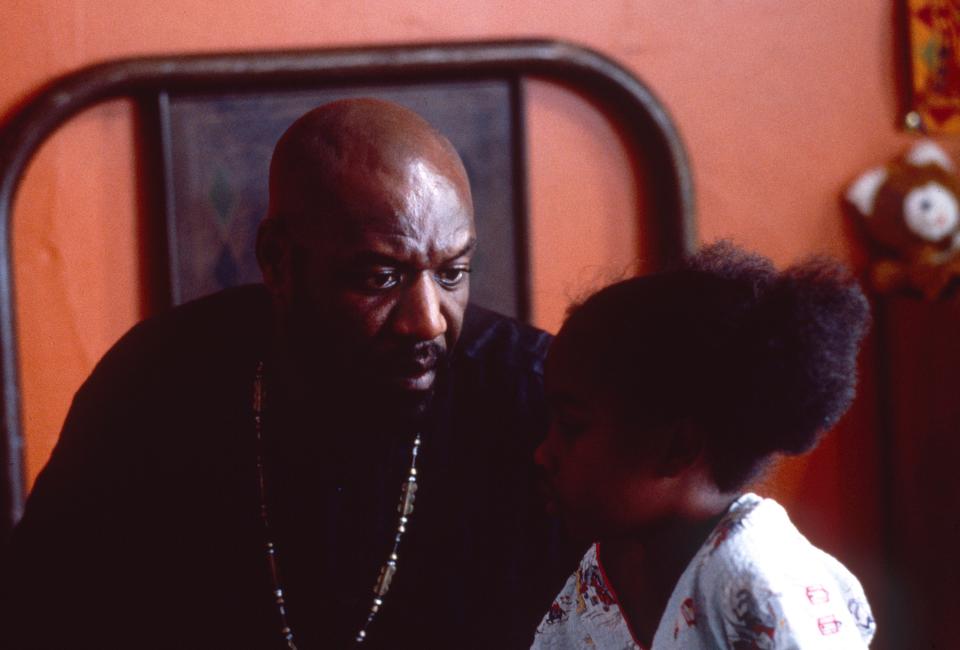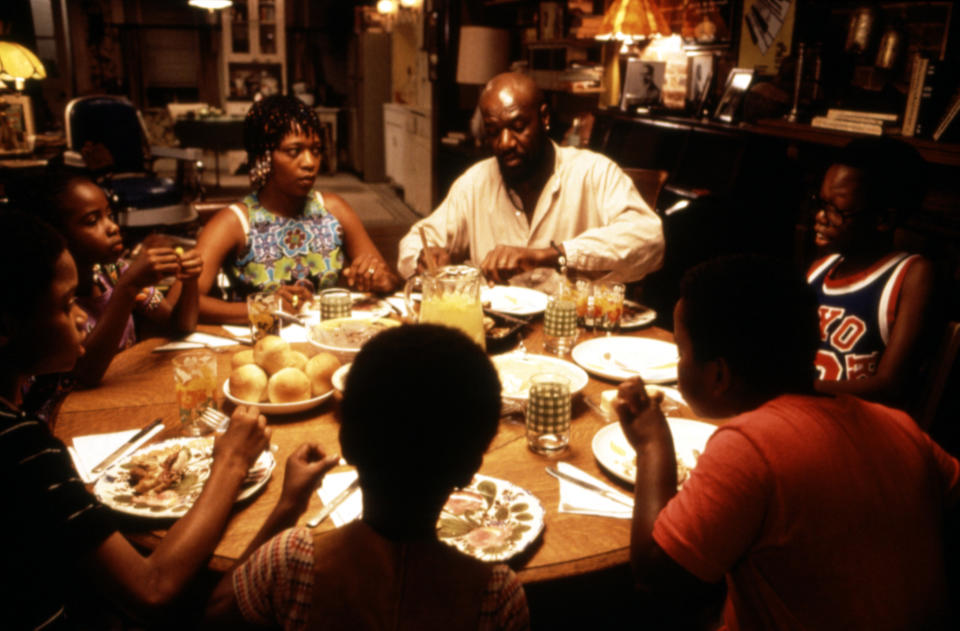‘Crooklyn’ Oral History: Behind the Dramas and Joys of Spike Lee’s 1994 Family Affair

Despite a muted reception back in May 1994 — certainly compared to Spike Lee’s previous film “Malcolm X” — “Crooklyn” has endured for three decades as one of the director’s most treasured films.
At the time, Spike Lee was still in the first decade of his career as a director, and “Crookyln” marked his seventh film in nine years with his “brand” in the popular consciousness as a polemical artist at the vanguard of the ’90s Black New Wave that also featured filmmakers such as John Singleton, Mario Van Peebles, and the Hughes Brothers.
More from IndieWire
How MoviePass Went from 'MovieCrash' to Profitability: 'All the Kinks Have Been Worked Out'
George Miller on Directing the Most Ambitious Action Franchise of All Time
Crooklyn, while fitting within Spike’s collected body of work about the Black experience in America, took a detour in tone from his earlier, more overtly political films such as “Do the Right Thing” and “Jungle Fever.” Contemporary reactions to the film were mixed, and “Crooklyn,” like all of Spike’s post-”Malcolm X” films up to “Inside Man,” was not a commercial success.
But time often rights all, and the current and correct consensus is that “Crooklyn” sits right at the top of many viewers’ top five Spike Lee films for its familial warmth, specificity of real life events being transposed on screen, and, of course, that glorious soundtrack of mostly jazz and R&B that Lee grew up with courtesy of his bassist father, Bill. It’s altogether an irresistibly moving story about grief and childhood. You can see “Crooklyn’s” influence on films such as “Boyhood,” “Moonlight,” “Dear White People,” and even Steven Spielberg’s “The Fabelmans.”
Writing with his sister Joie and brother Cinque, Spike Lee and his siblings crafted a film that closely mirrored the good and the bad of their childhood –—the grief, the games, the rows, the music, the crazy neighbors.
Following a stand-in for the Lee family across the summer of 1973, “Crooklyn” starred Delroy Lindo and Alfre Woodard as Woody and Carolyn Carmichael, polar-opposite parents of five in Bed-Stuy as well as Zelda Harris as their only girl, Troy. David Patrick Kelly also stars as Tony Eyes, based on a real life neighbor of the Lee’s who indiscriminately bred poodles while Spike cast himself as a malevolent glue sniffer named Snuffy.
Though the event does not happen until the film’s final third, “Crooklyn” is fundamentally about the passing of the Lee matriarch, Jacqueline, and the effect it had on Troy, who in Joie’s own words is her “fictional doppelganger.”
For the 30th anniversary of “Crooklyn,” IndieWire spoke to co-writers Joie and Cinque Lee, Delroy Lindo, Zelda Harris, David Patrick Kelly, Lee’s longtime editor Barry Brown, and cinematographer Arthur Jafa.
Genesis
“Crooklyn” began life in the pen of Spike’s younger sister Joie Lee, who showed the script to her brother, Cinque, who then brought it to Spike Lee while he was working on “Malcolm X.”

Joie Lee: My childhood always informed my writing. The genesis of the story was a collection of stories and essays I was working on at the time — these are not published works — just personal pieces I didn’t share. I wrote about characters in our neighborhood, and a lot of it was from memory. Many years later, I had a vision for a film. I wanted to tell my story cinematically. At that time, there was a dearth of films about Black families and Black girlhood. I didn’t see myself reflected in cinema. So I wanted to tell a story about my childhood, and at that point it was called “Hot Peas & Butter.” My mother’s death was the impetus for the story. I wanted to pay tribute to her. So what happened was, I showed my work to my brother Cinque…
Cinque Lee: I remember Joie working on the script and her showing me things that happened in our family. And I was really excited because it was like, “Wow, you’re really telling our story,” and from her point of view, which was great, as she was one of only two women in the family. I don’t remember asking to work on it but I think I may have suggested some stuff or we were just bouncing ideas or recollections.
Joie: Cinque really became my muse and biggest supporter. I was so encouraged by him to keep going, and he ended up showing the script to Spike.
Cinque: Spike was like “I’m doing this.” He just got it. It was an immediate reaction, which is rare for him.
Joie: I never showed Spike my script directly but Cinque told me he wanted to make it his next movie. I never got that enthusiasm from him directly. I called him and was like, “Wow, you really like it,” and he was a bit reticent, but that’s my brother. I did experience seller’s remorse. I remember calling Spike up after we made the deal and I said I’d changed my mind, I don’t want you to do it, but he said “Too bad, it’s too late.” But from there we began collaborating on the film.
Barry Brown: I met Spike in the summer of 1981, and we became friends and collaborators. Years later, while doing “Malcolm X,” he started talking about doing a film about his family, and I knew most of them by that point including his father a little bit, as he’d done the music on “Do the Right Thing” and “School Daze.” He was telling me about wanting to do a film about the struggles of his father being a jazz musician and his mother getting cancer.
Finding the Family
To get their Troy, “Crooklyn” underwent a huge open casting around New York before discovering “Sesame Street” star Zelda Harris. Spike also gave frequent collaborator Delroy Lindo his first lead role as his movie father Woody.

Zelda Harris (Troy): My routine as a kid was school, and then sometimes after school, I went to an audition. My parents were pretty selective in telling me what it was for. I remember my mom cutting out a piece of newspaper for a cattle call and saying we’re going to a really big audition. There was a lot of people, a whole line around the building, and I’d talk to myself to keep myself busy. I was a little kid. I hold my headshot and I walk across the auditorium and I put my headshot on the top of the pile but while I’m walking across the stage I recognize this woman from the “Mo’ Better Blues” poster who turned out to be Joie.
I auditioned eight or nine times. I think on my first audition my mom gave me pressed hair so there was a little bit of glitz with my hair being straightened. But after the first audition — and I don’t know if somebody said something — but my father got the sense that we don’t need to be doing that, they wanted rough and tumble. When we got to the last audition, it was a bit of a kerfuffle because when we got there, nobody was there and we eventually got to where we were supposed to be. I go into the room with Spike and he said something to the effect of “I want to offer you the role of Troy in my upcoming film ‘Crooklyn.'” I was there but not there, my soul started leaving my body. Me and my dad had a celebratory box of french fries on the way home.
Cinque: I wanted to get my hands dirty with casting and go out and find some real kids. I started going out across public schools in Brooklyn, and I came across Zelda, and I was like “stop the presses.” I remember freaking out. I thought she was the one and she reminded me so much of Joie.
Joie: Troy is my fictional doppelganger. She’s me at 10 years old. It was incredible working with her. She is truthful, authentic, and organic, and her work is seamless. I often laughed at how much Zelda captured and embodied Troy’s essence. Witnessing how this eight-year-old child could hold her own and bring herself to this world, live in the circumstances, and be in the moment was uncanny.
Delroy Lindo (Woody): “Malcolm X” is how I heard of [“Crooklyn”], and Spike said he wanted me to do his next film. He sent me the script, and I agreed to do it. It was very straightforward. It was worlds apart from the role I had in “Malcolm X.” I found it thrilling and affirming that Spike trusted me with his work, especially this work. Spike made it clear that I was not playing his father which was confusing but I now understand Spike was probably not ready for that level of scrutiny. He has since acknowledged that I was playing his dad and thanked me for playing his dad.
David Patrick Kelly (Tony Eyes): I had just finished production on “The Crow” and I was doing theater with John Turturro, who I think put in a world. At the audition, there was a young fellow named Samuel L. Jackson who was doing the readings for Spike. Spike warned me that this was a guy with smelly dogs but I wasn’t afraid and went for it and I think he liked that.
It’s Personal
With a lot of kids on set, filming was not an easy process. The cast and crew found collaborative understanding in actors working closely with children for the first time and differing views on the approach to the personal material.

Lindo: The foundation of everything for me was all the information I got from Spike’s family who were very generous with their time. The constant thing I was hearing was what a wonderful musician he was. He was a very, very serious musician.
Kelly: I love the scene where I’m playing Tom Jones on the organ and Delroy’s character starts slamming the wall, telling him to shut up because he violated his musical spirit.
Lindo: I’ve said to Spike on various occasions that those kids scared me. I was not a parent at the time, and I really wanted to do a good job. I had a very intense desire for these kids to like me. It created an apprehension in me that in retrospect I wish I had used in service of Woody who is very much on shaky ground with his family.
Harris: It was a really quick transition from getting the part to pre-production, and I remember being at 40 Acres and a Mule offices and there being a sort of handoff between Joie and my father. I went under Joie’s wing, and we spent the summer learning how to double dutch, all these ’70s things. I had VHS tapes of commercials from the era. When I reflect on my childhood, I think I had a childhood in the ’90s and another in the ’70s.
Joie: We did a whole immersion for Zelda just to get her into ’70s culture, language, music and that’s when I started working with her. My role was to coach the kids, and I’m grateful for that.
Harris: To this day, I feel so lucky for being able to learn from Delroy and Alfre Woodard. The things Alfre can do as an actor. Alfre helped show me things that I wanted to learn. She demonstrated a technique to all the kids in the cast where she was basically teaching us how to pull sorrow from our bodies. She grabbed us by the hand, and we made a circle, and it was this beautiful, primal ritual where we were breathing together.
Delroy was so sweet and kind. I was really nervous about the scene where Troy breaks, and I had a long conversation with him about that, and it’s because of Delroy I was able to do it. I felt a lot of pressure to cry and cry good tears. My father saw that this thing was becoming a problem and he told me to speak to Delroy. In talking to Delroy, I completely broke down, and he told me that however I did it was the right way to do it, which I had never considered before.

Lindo: Folks said Alfre and I had such great chemistry but that was not something I was actively aware of. I hadn’t done a lot of film and this was a big job for me and a big responsibility and I would say that it is the end result of two serious actors applying themselves to their work individually.
One thing I will say was special was when Alfre came to tell me I hadn’t been paying the bills, and we have the huge argument. I’m proud of that scene because it was improvised. We didn’t have any specific dialogue. Spike cleared the set, and the only people in the room were me, him, Alfre, and the script supervisor. Alfre and I started to improvise back and forth and when we found something that worked, the script supervisor wrote that down. It was wonderful because it was such an impactful scene. Working in that manner was very fulfilling, and I’ve made four films with Spike, and that’s the only time we’ve done it to that extent.
Kelly: I remember the director of “Boyz n the Hood,” John Singleton, came to visit the set, and I was in my semi-method actor stage so couldn’t meet him, but he came down to go to school with Spike.
Joie: I wish the scenes down south had been allowed to speak for themselves without the distorted lens. I think the writing and the characters stood on their own. I did ask Spike if we could take them out if we did a re-release. He said: “I understand your question but the answer’s no.”
Arthur Jafa (cinematographer): It was Spike’s idea to use the anamorphic lens, and I remember a theater gave out a pass with a disclaimer on it to say that it was intentional. But it was a difficult shoot.
Brown: Music is such a hugely important part of Spike’s life, nobody controls the music but Spike. We didn’t cut the dream sequence to music. We wanted to add a Jimi Hendrix song to that but we couldn’t get the rights because his family said we don’t want to tie Jimi Hendrix to drug which was funny.
Jafa: I had a lot of experimental ideas that I think Spike thought were a bit too extreme. I was very much fascinated with the idea of evoking the ’70s in a way that was going to be nuanced with psychedelic colors and taking inspiration from Jet Magazine. The ’70s was disco and cocaine, and I wanted it to feel heightened because everything feels like that when you’re a kid. We’d do tests on retention processes and things like that but Spike, at the time, thought it was a little extreme. The test prints were more psychedelic.
Lindo: I was initially disappointed I wasn’t in it more. I don’t remember anything being cut but I remember having a certain disappointment I wasn’t in it more, that I was not more of a presence.
Brown: We never did assembly cuts. I didn’t know what one was, and I don’t think Spike did either because when we started working together we were young and green. It was always just “let’s cut it.” Spike always wants to see what it looks like, even from the first cut. And there was very little left on the cutting room floor, like nothing. “BlacKkKlansman” was the same, there were no deleted scenes.
Jafa: Working with Spike wasn’t really working in Hollywood. The crew was 90% Black, which is an anomaly for studio-backed films. He figured out how to work in proximity to Hollywood without giving up autonomy.
A Family Affair
“Crooklyn” featured a parade of Lees on set: Spike was in the director’s chair, Joie coached the child actors and was on set almost every day, as was Cinque, with their other brother David provided behind the scenes photography.

Joie: My favorite part of the production was spending time on the set daily with my brothers.
This was a family affair, and I treasured it. My brothers and I did not grow up in an openly expressive or affectionate family. We kept our feelings close to our chests. It was a joy to come to the set daily and share this space with my brothers. We were revisiting our childhood, on the one hand, a precious time, and on the other, the most devastating and impactful event in our lives: our collective trauma. So it provided an unspoken level of comfort.
Cinque: It was a lot of fun because we pretty much regenerated our house. We set up the boys room exactly how it was. Pretty much everything in the movie happened, even the dog being stuck down the sofa.
Joie: There was one time where Spike and I had a big blow up because I felt like he was doing something wrong that was a great disservice and I had a major meltdown. I felt like this scene with the kids on the stoop didn’t honor the story and the tone of the film but my brother listened to me and told me to come to set every day.
I don’t know if my father ever watched the film but I think he would have liked it. In retrospect I wish my father had composed the score but unfortunately that didn’t happen.
Grief
Grief is at the very heart of “Crooklyn,” for those who made it and for those who watch it. Joie and Cinque speak about how making the film did not help them come to terms with the traumatic childhood loss of their mother.

Joie: It did not help me process the events of my childhood. I thought I was ready but I wasn’t. When my mother passed, we did not grieve. In “Crooklyn,” the death of Carolyn is sudden, and the family just moves on, and it’s not addressed. There’s no process of mourning. And that was pretty close to real events. It was difficult to write those scenes and probably cathartic in some sense and at the time of writing “Crooklyn,” I could not process my grief, and it might be why I chose to tell the story from a 10-year-old Troy as opposed to a 14-year-old, which was my actual age when my mother passed away. I was focussing on a more innocent time. It’s still something I’m processing now that the enormity of the loss has caught up with me decades later.
Cinque: It absolutely did not help me deal or process my grief. That came years after we finished the movie. Working on it, you kind of have to distance yourself from it and basically blocking it out. I thought “Crooklyn” was my way of dealing with grief but, boy, was I wrong because we never dealt with it. Things went haywire after my mom died. It was like if Rome fell.
Legacy
30 years later, “Crooklyn” is now considered one of Spike Lee’s very best films and a landmark portrayal of Black girlhood.
Kelly: When I saw it for the first time, I said to Spike, “This is your ‘400 Blows,'” because it was really something so beautiful. One of the themes of my life is to try and find beauty where there is none and that’s what artists do and that’s what Spike did with this movie with his family very much involved and taking inspiration to show that even in the bleakest of moments you can make something transcendent. Coming from the tragedy of “The Crow”, it was healing for me to be around all these kids. I still have my beautiful sweatshirt with the “Crooklyn” logo on it.
Jafa: I think it’s objectively true. When the history of Black cinema in the 20th Century is written, there’s an obvious break between before Spike and after Spike. There’s no other way around it.
Lindo: It’s a beautiful, beautiful piece of work. These stories about African American girls don’t get told. I don’t think it got the same kind of recognition at the time because people expected Spike on a soapbox with fists in the air. It’s incredibly rewarding to be a part of a piece of work that means so much to people. Back when I was in New York theater, we thought art could change the world but I’ve modified that thought to if art cannot change the world then it can certainly impact the human condition. “Crooklyn” really affirms my life choice and what I’ve chosen to do as a creative worker.
Harris: The full circle of my understanding of the film was about 15 years, as when I was in college, a friend was putting a movie on and that movie was “Crooklyn.” I hadn’t sat down and watched it before in that way. The bond I created with Joie is one of the most powerful bonds I’ve made in my life.
Joie: To this day, I’m not able to watch “Crooklyn” in its entirety. Once Troy leaves the south, I’m out. I have to leave the theater. I often ask myself why did I write about that time.
Best of IndieWire
Every Palme d'Or Winner from the Cannes Film Festival, Ranked
The 13 Best Thrillers Streaming on Netflix in May, from 'Fair Play' to 'Emily the Criminal'
The Best Father and Son Films: 'The Tree of Life,' 'The Lion King,' and More
Sign up for Indiewire's Newsletter. For the latest news, follow us on Facebook, Twitter, and Instagram.

 Yahoo News
Yahoo News 
